
Midrex 2.5mg Tablet
Manufacturer
Winmark Healthcare Pvt Ltd
Salt Composition
Midodrine (2.5mg)
Key Information
Short Description
Midrex 2.5mg Tablet is used to treat low blood pressure (hypotension) in patients who experience dizziness due to low blood pressure while standing up suddenly from sitting or lying position.
Dosage Form
Tablet
Introduction
Midrex 2.5mg Tablet can be taken with or without food. This medicine is taken during daytime hours when people stand most often. But it should not be taken if you are going to lie down for a long time after the dose. You should always take this medicine as advised by the doctor and should never stop it without consulting the doctor. You should monitor your blood pressure regularly while taking this medicine.
Directions for Use
Take this medicine in the dose and duration as advised by your doctor. Swallow it as a whole. Do not chew, crush or break it. Midrex 2.5mg Tablet may be taken with or without food but it is better to take it at a fixed time.
Safety Information
Side Effects
Headache Nausea Rash Urinary retention Difficulty in urination Flushing Supine hypertension
Alcohol Warning
It is not known whether it is safe to consume alcohol with Midrex 2.5mg Tablet. Please consult your doctor.
Breastfeeding Warning
Midrex 2.5mg Tablet is probably unsafe to use during breastfeeding. Limited human data suggests that the drug may pass into the breastmilk and harm the baby.
Pregnancy Warning
Midrex 2.5mg Tablet may be unsafe to use during pregnancy. Although there are limited studies in humans, animal studies have shown harmful effects on the developing baby. Your doctor will weigh the benefits and any potential risks before prescribing it to you. Please consult your doctor.
How it works
Midrex 2.5mg Tablet is an alpha-adrenergic agonist. It works by activating specific receptors on blood vessels. This causes the blood vessels to tighten, which increases blood pressure.
Quick Tips
Take Midrex 2.5mg Tablet at least 4 hours before bedtime to avoid the risk of high blood pressure at night time. Monitor your blood pressure regularly while taking this medicine. Inform your doctor if you have a history of the prostate disorder or blood circulation problem. Inform your doctor immediately if you notice symptoms of chest pain, palpitations, headache, shortness of breath, and blurred vision. Inform your doctor if you are pregnant, planning pregnancy or breastfeeding.
Related Medicines

Gutron 2.5mg Tablet
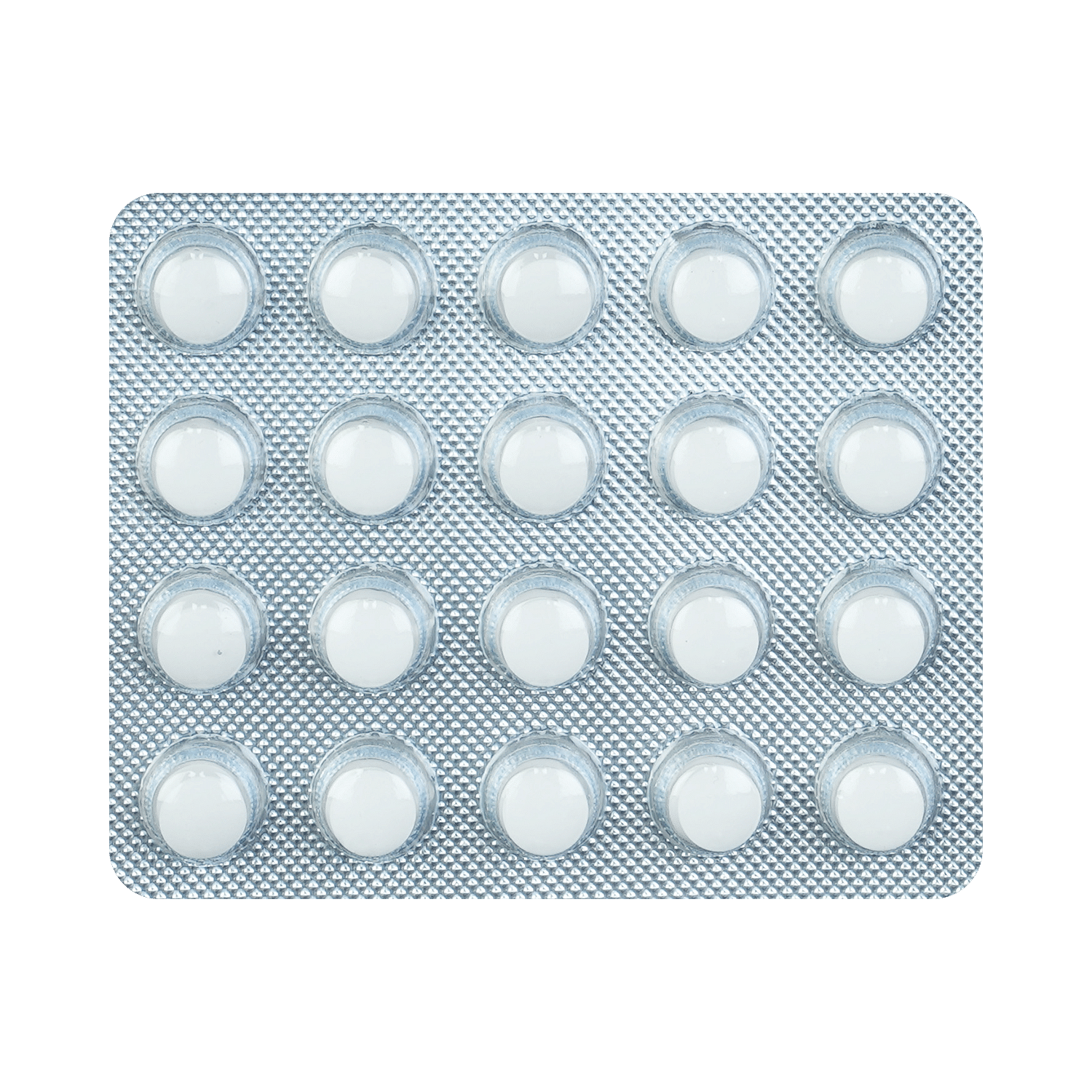
Xidorin Tablet

Gutron 2.5mg Tablet

Midohep 2.5 Tablet
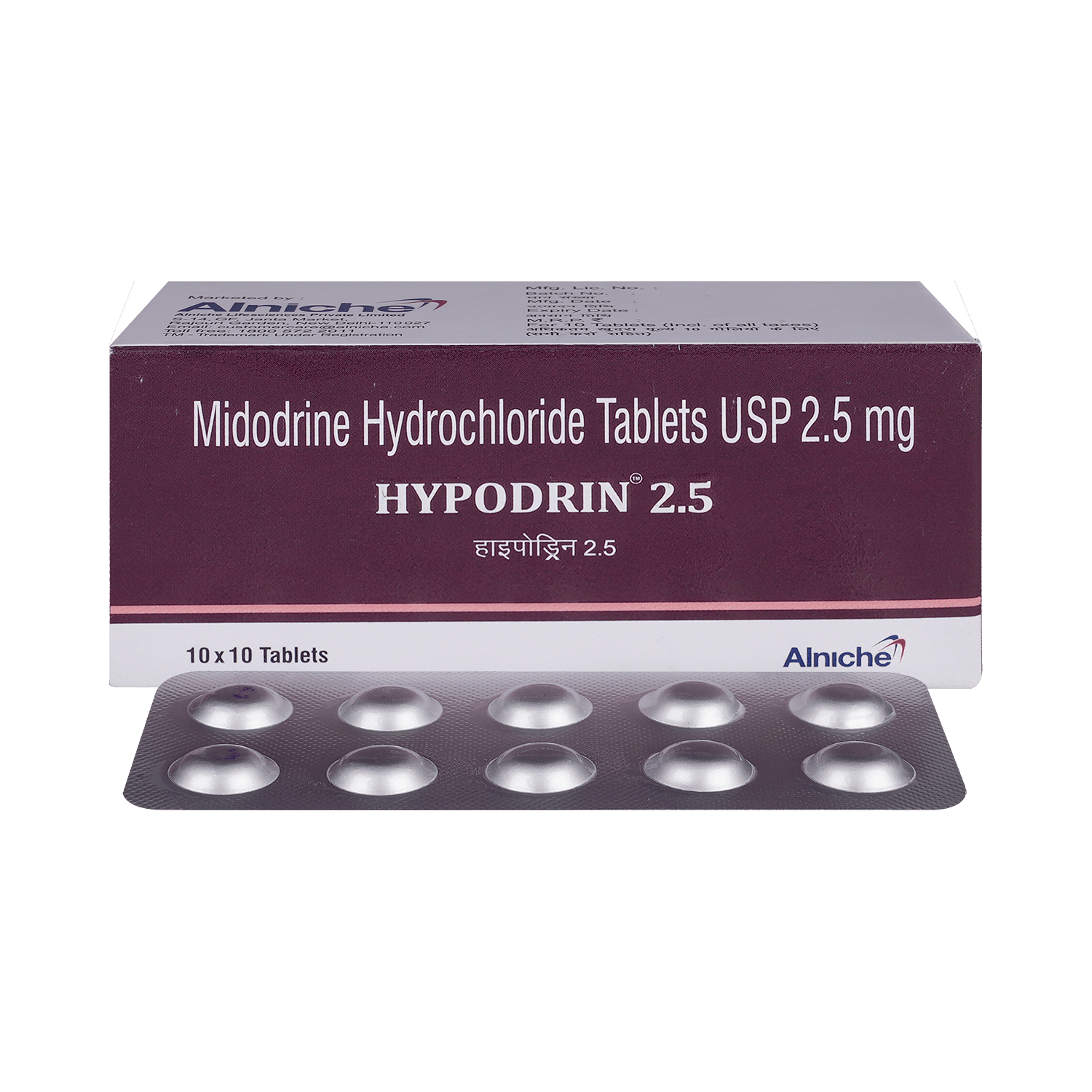
Hypodrin 2.5 Tablet
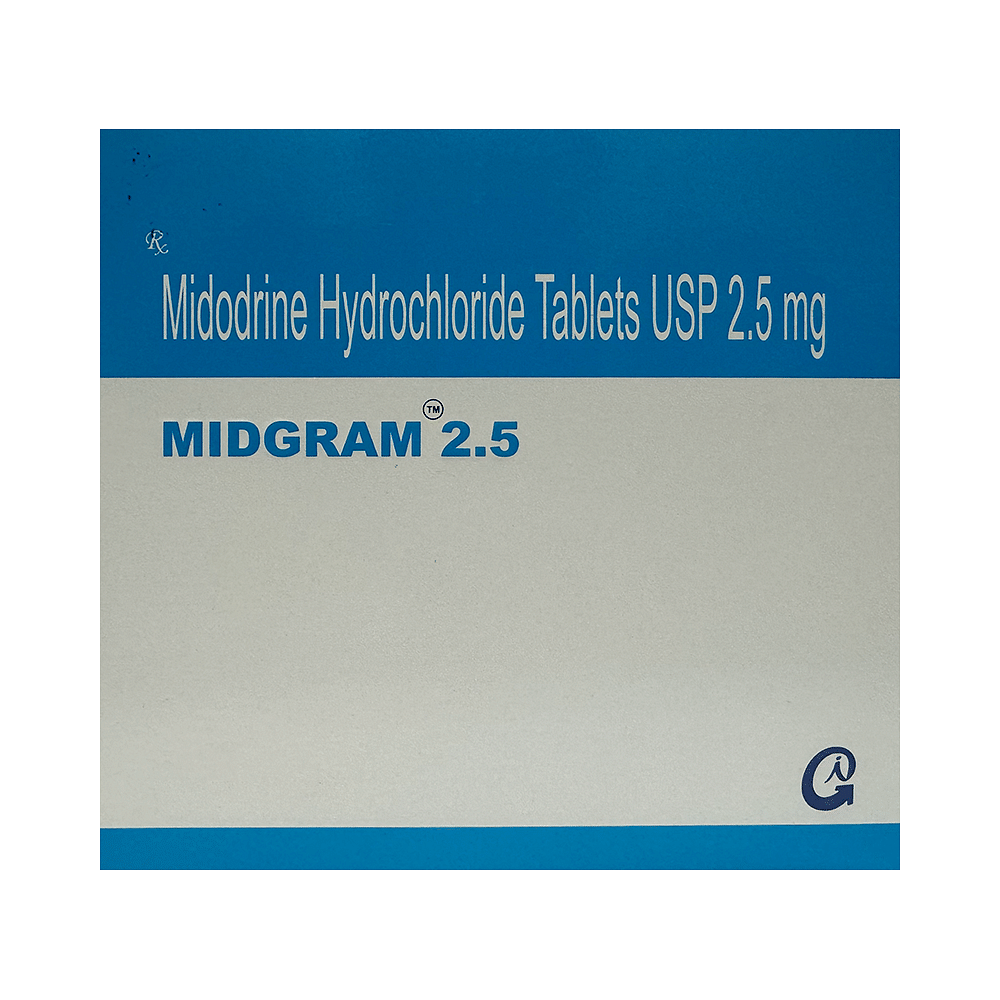
Midgram 2.5 Tablet
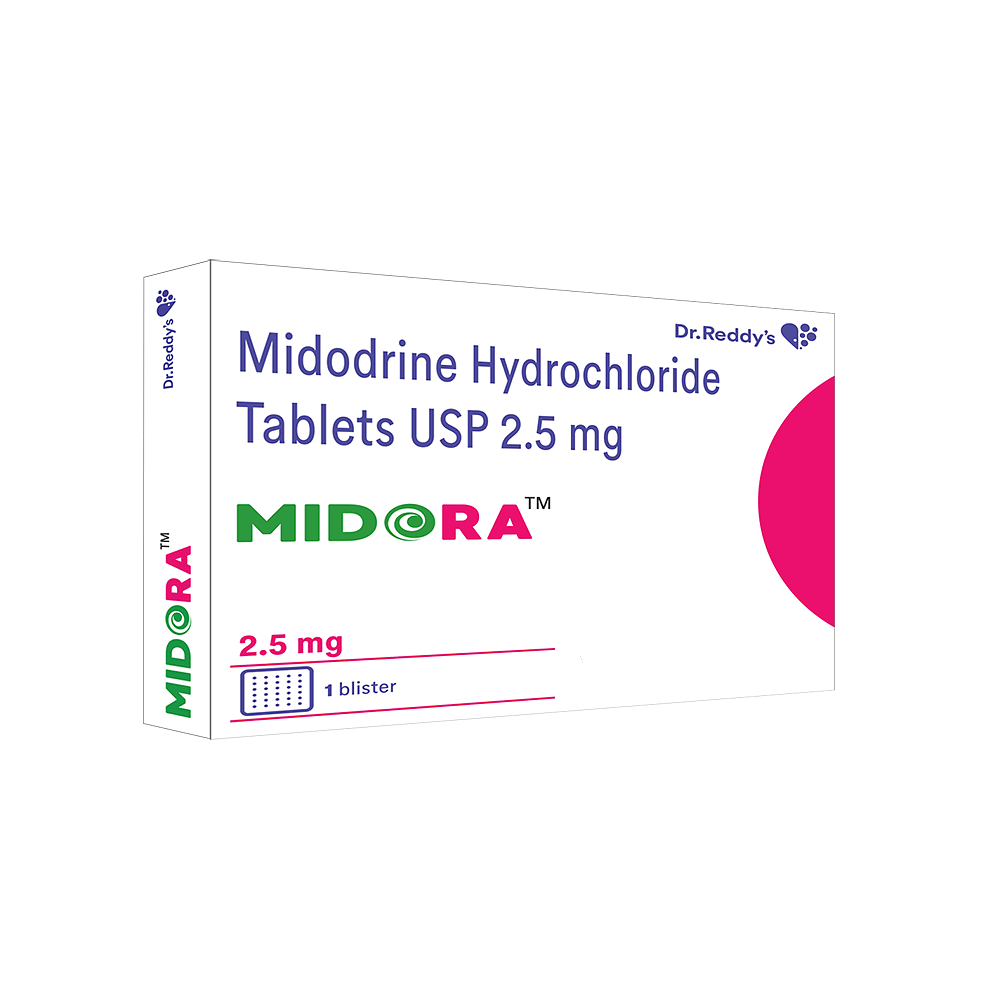
Midora Tablet

Midodrive Tablet
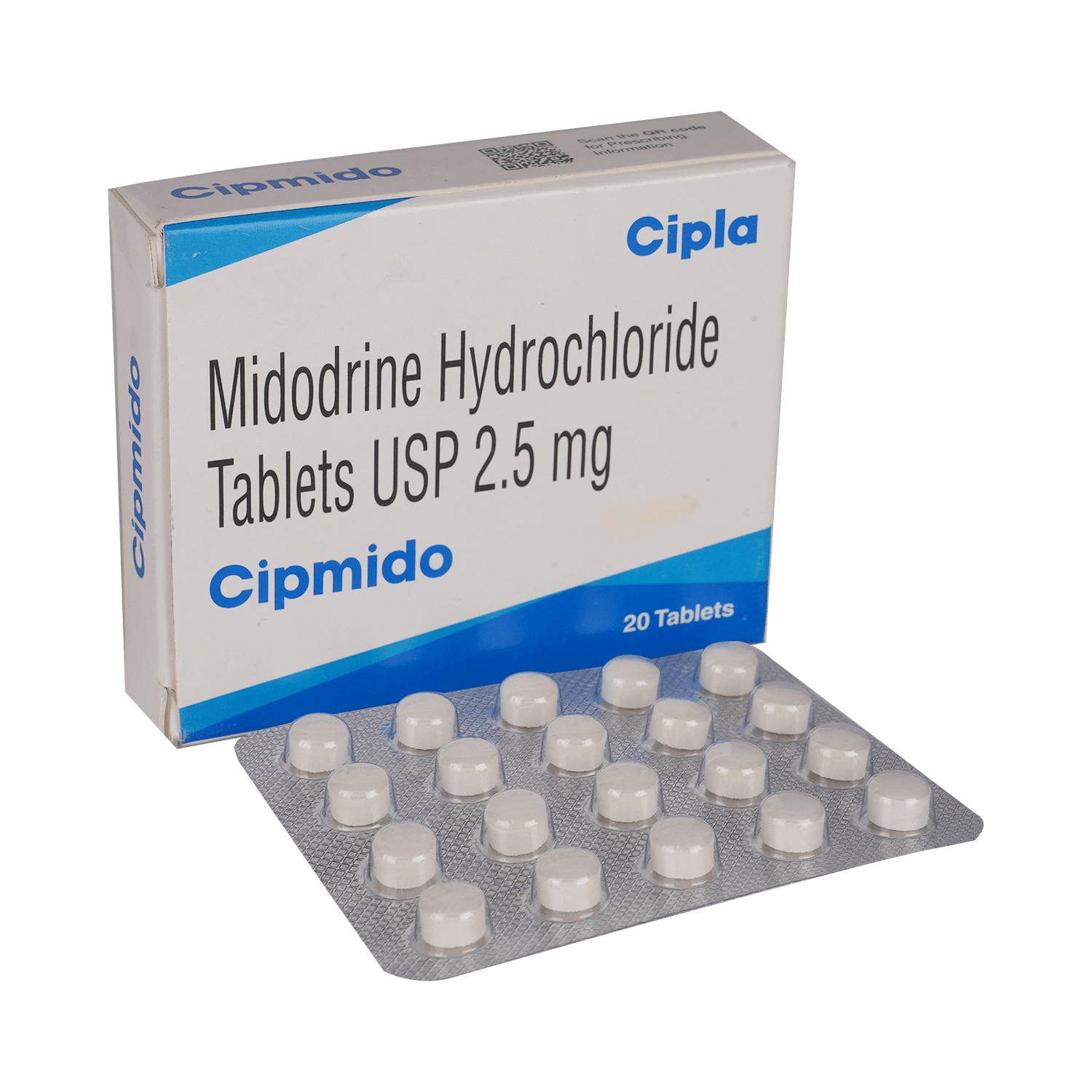
Cipmido 2.5mg Tablet
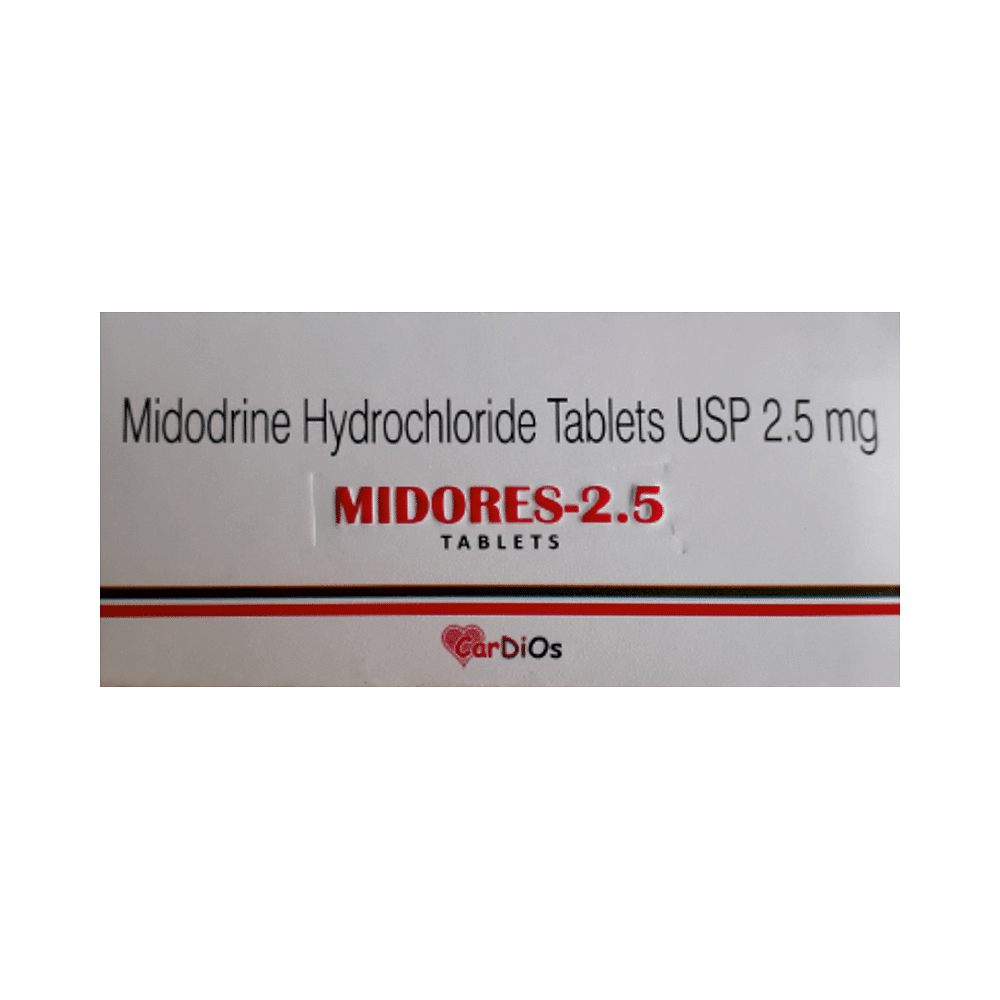
Midores 2.5 Tablet
Frequently asked questions
Does Midrex 2.5mg Tablet increase blood pressure?
Yes, Midrex 2.5mg Tablet may cause high blood pressure when you are lying flat on your back (supine hypertension). This medicine is only recommended for individuals whose low blood pressure affects their daily life and those who could not be successfully treated with other therapies. It is essential to consult your doctor before taking this medication.
Does Midrex 2.5mg Tablet affect heart rate?
Midrex 2.5mg Tablet may slow down the heart rate slightly. It is crucial to use this medication cautiously when combined with other medicines (beta blockers, digitalis, etc.) that can further slow down the heart rate. Patients should be monitored for symptoms suggestive of slow heart rate. If you experience any symptoms, consult your doctor for guidance.
Why should I avoid lying down after taking Midrex 2.5mg Tablet?
You should not lie down immediately after taking Midrex 2.5mg Tablet due to the risk of supine hypertension (high blood pressure that occurs when you are lying flat on your back). To reduce the risk of supine hypertension during the night, it is recommended to take the last daily dose at least 4 hours before bedtime and elevate the head. Consult your doctor for personalized advice.
Does Midrex 2.5mg Tablet work immediately?
Midrex 2.5mg Tablet takes approximately 1 hour to show its effects, and the action persists for about 2-3 hours. If you have any concerns or questions, consult your doctor for guidance.
How should I take Midrex 2.5mg Tablet?
Midrex 2.5mg Tablet should be taken exactly as directed by your doctor. It is taken orally with or without food. Swallow the tablet as a whole with a glass of water. Typically, it is advised to take the medicine three times a day (morning, midday, and late afternoon [before 6PM]) with a gap of at least 3 hours. Take the last daily dose of Midrex 2.5mg Tablet before an evening meal and at least 4 hours before bedtime. Consult your doctor for personalized advice.
Who should not take Midrex 2.5mg Tablet?
Midrex 2.5mg Tablet is not recommended for patients with an allergy to any component of the product, severe heart disease, unusually slow heart rate, high blood pressure, or conditions causing tightening of the arteries. Additionally, treatment with Midrex 2.5mg Tablet should be avoided if the patient has an enlarged prostate gland, urinary retention, pheochromocytoma, acute or severe kidney disease, overactive thyroid, poor vision due to diabetes, or narrow-angle glaucoma. Consult your doctor for personalized advice.
Is any monitoring required during Midrex 2.5mg Tablet treatment?
You may need to check your blood pressure and get your kidney and liver function tests done before starting treatment with Midrex 2.5mg Tablet. Once you begin treatment, keep a constant track of your blood pressure and heart rate, especially after lying down. Consult your doctor for personalized advice.
How will I know that I have developed supine hypertension?
Symptoms of supine hypertension include chest pain, palpitations, shortness of breath, headache, and blurred vision. If you develop these symptoms, inform your doctor immediately. The doctor may reduce the dose of Midrex 2.5mg Tablet or discontinue treatment if the symptoms persist. Consult your doctor for personalized advice.
Can I take metoprolol with Midrex 2.5mg Tablet?
Using Midrex 2.5mg Tablet and metoprolol together can significantly slow down your heart rate. Hence, you need to be cautious while using both together. If you experience slow pulse, dizziness, or fainting, inform your doctor as the dose of these medicines may need to be modified. Consult your doctor for personalized advice.


